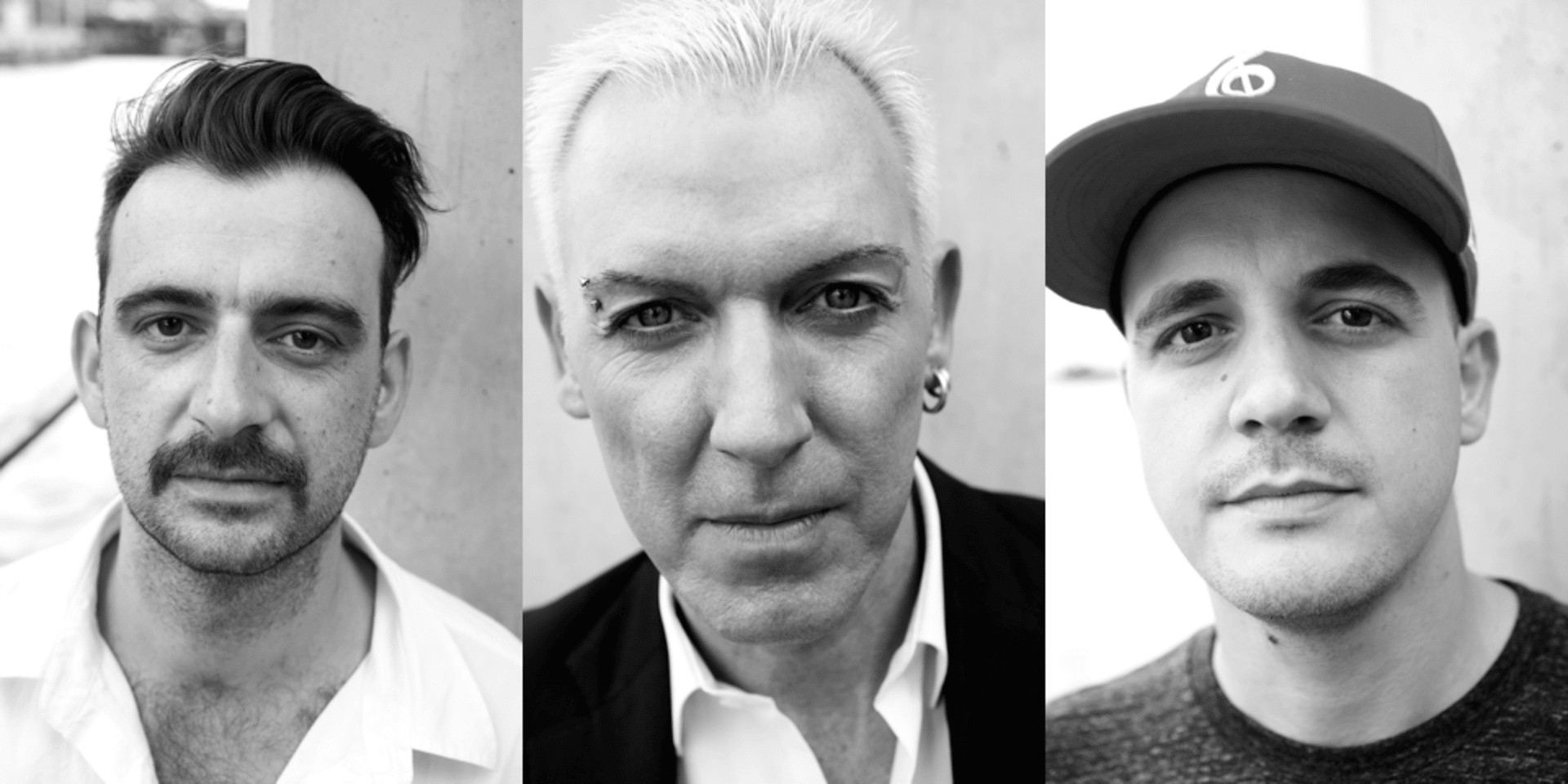
H.P. Baxxter meets Modeselektor – “The hate wears off” Part 3
Like wordsmith H.P. Baxxter, Modeselektor also have a special place in their hearts for challenging lyrics, as shown on “Shipwreck” from last year’s Monkeytown. The song was co-written and sung by Radiohead frontman Thom Yorke, himself no stranger to crypticness:
You laugh,
slap on your face.
And she laughs,
slap on the cake.
And laugh, slap
on your face.
And they laugh slap on your face.
And they laugh, slap on, slip on
the tracks.
Read Part 1 “It’s the haircut, I guess.”Read Part 2 “Every audience loves pyro”
GB: How did you discover rave culture?
HP: Rave was omnipresent in Hanover, where I lived back then. We had the British BFBS broadcast with DJ Steve Mason, and many of the UK soldiers that lived in the Hanover area attended these raves. I think that’s the reason why these raves were so different to those in other cities.
GB: I still own a lot of the tapes that I recorded from the radio. Steve Mason was an extremely important DJ.
SS: As was Tim Westwood with his BBC show on hip-hop. He had this incredible voice. I always asked myself what a man with such a voice looks like.
GB: The difference between then and now is that nowadays we don’t have these practically religious wars between genres anymore. Frankfurt against Berlin against Cologne against Hamburg—this was a conflict back then. Every city seemed to have their own fraction of rave society. But they were true enemies. It was like in the old DAF song: “Alle Gegen Alle” . . .
HP: And everybody hated Scooter. But I’ll tell you one thing: the hate wears off. You learn to live with it. And the best thing is that in 2012 everybody seems to love Scooter.
SS: Honestly, when I heard “Hyper Hyper” for the first time in 1995 I thought: Now it’s over. We loved Detroit techno and Scooter was the antithesis while at the same time so much more successful than everybody else. For me, “Hyper Hyper” marks the point when suddenly you could hear commercial techno blasting from pimped out Golf GTIs racing through our village. I thought it was the end of techno.
HP: I get your point.
GB: We didn’t have Nirvana. With the fall of the Wall, we immediately became regular visitors of the legendary Tresor club in Berlin’s Leipzigerstraße. Underground Resistance, Sonic Destroyer, Cosmic Baby, Kid Paul or Tanith in the mid-nineties—it was just a singular moment in techno.
HP: I went to the Tresor too, but the vibe never really got me. I always preferred the huge raves and the moment when thousands of people literally feel the same energy at the same time. Rave culture had the opposite message compared to the introverted and cool new wave music that pre- ceded rave. With rave suddenly mass hysteria was allowed again. I was blown away by the first Love Parades. In a sense, with Scooter, we always tried to create this euphoric level of energy. Today I can say I understand why some people thought we were just a band that had been casted by a nameless producer. We probably looked like that. But we weren’t.
GB: I think Scooter were just too successful from scratch.
HP:The reason is probably because from day one we were able to press the big rave experience into the format of a four-minute track— the agitation, the crowd noise, the reverb you only get when you perform in a big arena. Thanks to this, many of our tracks have an energetic live feeling that appeals to a lot of people. At the Tresor you had these monotonous clong-dong rhythms that really didn’t appeal to me that much.
SS: In the Tresor it didn’t matter where the DJ was spinning his records. In the midst of all the fog and with all the strobe lights you couldn’t see anything anyways. Going out there was quite an intimate thing to do even if you were there together with a group of people.
HP: By the way, why did you guys choose an ape as your logo?
GB: Our graphic designer Martin told us to use the ape. He thought it was a strong image.
HP: And he’s right. A strong image is very important if you want to survive in show business.
GB: Scooter has the megaphone logo. Strong, but also a bit impersonal, don’t you think?
HP: There’s some truth to this, for sure. But I don’t think it would be a good idea to change a logo after eighteen years. I envy the Einstürzende Neubauten a bit for their perfect logo.
GB: I just realize that Scooter is like a strong brand, like Nivea or Coca-Cola.
HP: When I think of strong brands I think of Veuve Clicquot. It’s that orange label. The orange tells me: I like it. It’s happened to me that I would buy a bottle of Veuve and the cashier would try to convince me that they have better quality champagne for less. But, you know, I would never buy the nameless champagne. I want the orange one. It’s the same with Motörhead. There were dozens of bands that were as loud as Motörhead, but none of them had a logo of equal strength.
GB: They have the best selling t-shirts in the world, for sure. I spot someone wearing a Motörhead t-shirt at least once a day—regardless of where I am. ~
–
Published December 16, 2012. Words by Max Dax.
